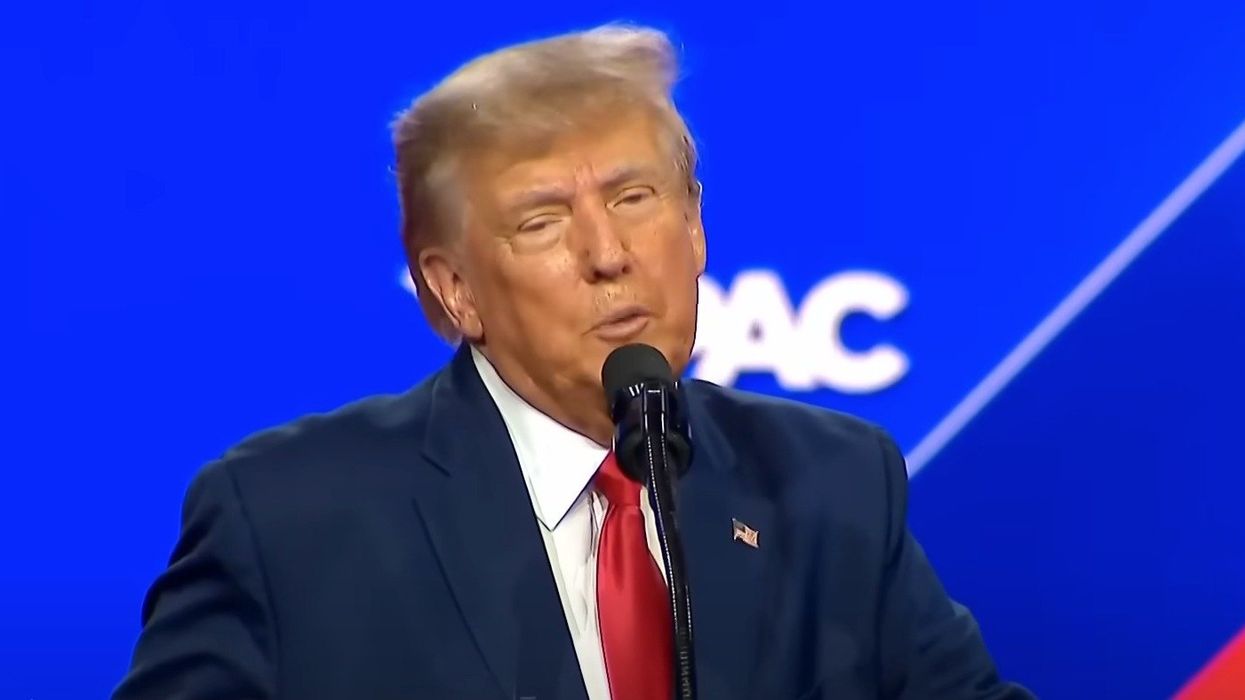How Trump May Use Trade Chaos For Illegal Gain
You can get rich when stocks go up. You can get rich when stocks go down. When stocks go up, people who knew to buy them in advance may win big. If they go down, investors who had the wisdom to "go short" on them — that is, bet on their decline — can make a bundle.
Clearly, anyone who can predict what stock prices would do can make magnificent profits. And who knew that Donald Trump was about to announce market-moving plans for bigger tariffs, then smaller tariffs, then sideways tariffs, then tariff delays?
Trump knew.
It happens that trading stocks or other investments based on insider information, whether by a corporate executive or government official, is highly illegal. Trump and any confidants who got wind of what he was about to say on tariffs could have made fortunes buying or selling on that information.
Were Trump and friends engaging in such fraud? So far no one has presented direct evidence that Trump's whiplash statements and contradictory actions on tariffs are part of a ploy to manipulate stock prices. But I did ask a conservative banker friend whether he thought insiders were trading on all this tariff chaos. His answer: "I have absolutely no doubt about it."
A number of factors strongly hint that this could be going on.
Hint number one is that if one believes Trump's vows to move forward on tariffs, none of this makes sense. Nearly every economist holds that reckless tariffs will crash the economy. As a negotiating tactic, what have these gyrations produced? Pathetically little.
Example: Trump slapped 25 percent tariffs on Canada and Mexico at midnight, March 4. Stock prices tumbled. Hours later, his Commerce Secretary Howard Lutnick said Trump might reconsider. Trump then announces a one-month delay on some tariffs. Stocks jumped.
U.S. automakers rely on parts from Mexico and Canada to make their vehicles less expensive and easier to sell. Trump "explained" that the American companies could use the month to move that production back to the United States.
Let's cut to the chase: Vehicle makers couldn't build new parts factories in just a month even if they wanted to. But gosh, what a good time insiders could have trading on their pain.
Hint number two is that Trump is firing ethics watchdogs that would call attention to illegal stock manipulation. The Department of Justice, for one, is supposed to prosecute government officials for insider trading. Trump just gave the No. 2 position at DOJ to Todd Blanche, who was his personal criminal defense lawyer.
Trump did a mass firing of inspectors general, some of whom investigate insider trading by government officials. He didn't even give Congress the 30-days' notice required by law.
Hint number three is that Trump simply loves a good scam. It matters not whether the victims are students at his university, investors in his bankrupt casinos or his fans.
Some may recall how the Trump Rebate Banking System suckered sad members of his cult. TRB sold such items as "Trump Bucks," "Trump coins" and membership cards on the false claim they would become legal tender in a future monetary system.
As things now stand, a big chunk of North American trade remains exposed to tariffs. That means Trump has much opportunity to play more tariff games with friendly countries, U.S. workers, manufacturers and ordinary investors.
The time has long passed for Americans to dismiss the idea that Trump's yo-yo "trade policy" is a simple matter of indecision. They should ask whether it involves, or even revolves around, an insider trading scheme benefiting Trump and his consorts. Does anyone have a better explanation for it?
Reprinted with permission from Creators.












Trump Cabinet Nominee Withdraws Over (Sane) January 6 Comments